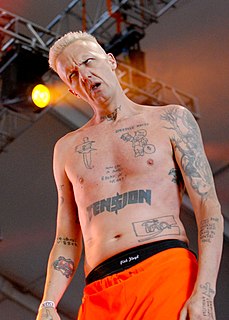A Quote by William Gibson
When I wrote 'Neuromancer', I had a list in my head of all the things the future was assumed to be which it would not be in the book I was about to write. In a sense, I intended 'Neuromancer', among other things, to be a critique of all the aspects of science fiction that no longer satisfied me.
Related Quotes
I was standing on the shoulders of other science fiction writers like William Gibson, who had written 'Neuromancer' on a typewriter before home computers even really existed, and Neal Stephenson who wrote 'Snow Crash' in the early '90s and imagined an online virtual world before the birth of the modern Internet.
The main difficulty is finding an idea that really excites me. We live in an age when miracles are no longer miracles, and science and the future are losing their sense of mystery. For science fiction, or at least the type of science fiction I write, this development is almost fatal, but I'm still giving it all I've got.
It had also been my belief since I started writing fiction that science fiction is never really about the future. When science fiction is old, you can only read it as being pretty much about the moment in which it was written. But it seemed to me that the toolkit that science fiction had given me when I started working had become the toolkit of a kind of literary naturalism that could be applied to an inherently incredible present.
A snappy label and a manifesto would have been two of the very last things on my own career want list. That label enabled mainstream science fiction to safely assimilate our dissident influence, such as it was. Cyberpunk could then be embraced and given prizes and patted on the head, and genre science fiction could continue unchanged.
Somebody said, "Well, you're going to write your definitive book about your life, biography." No, I'm not. I haven't done that. I wrote a book of letters which gives an insight into the real me as opposed to the public perceptions of me. But I'm convinced historians will figure out the things we got wrong and hopefully the things we got right.
































